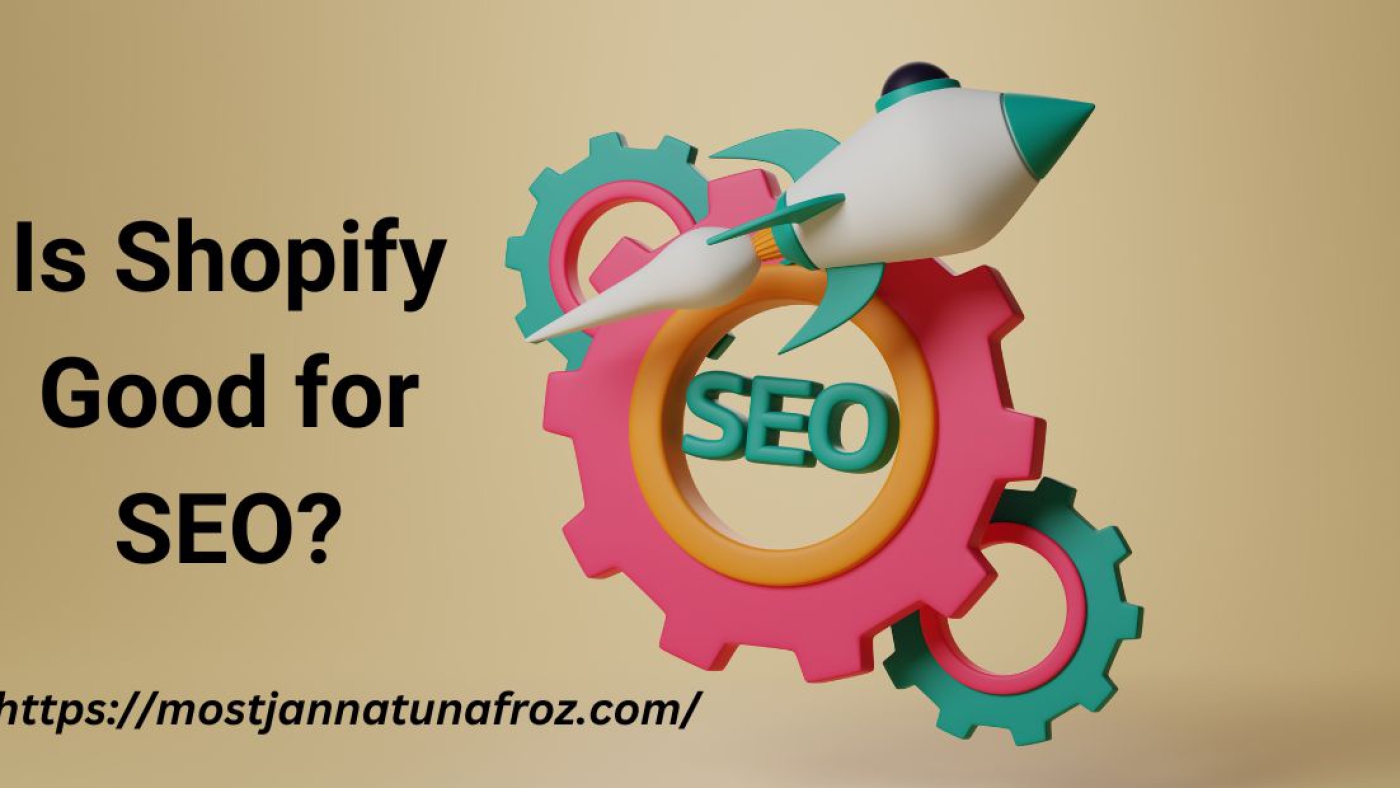Absolutely, Shopify is truly good for SEO! Infect Shopify is Best For SEO.
As e-commerce continues to grow, many businesses are opting for Shopify due to its user-friendly interface and vast capabilities. However, a common question arises for store owners and digital marketers alike: Is Shopify truly effective for SEO? In this article, we’ll dive deep into Shopify’s SEO features, potential challenges, and optimization tips to help you make an informed choice.
Table of Contents
- What Makes an E-commerce Platform SEO-Friendly?
- Key SEO Features in Shopify
- Strengths of Shopify for SEO
- Limitations of Shopify’s SEO Capabilities
- Top Tips for Optimizing SEO on Shopify
- Shopify vs Competitors in SEO
- Conclusion: Is Shopify Good for SEO? Final Thoughts
What Makes an E-commerce Platform SEO-Friendly?
SEO is essential for driving organic traffic, increasing visibility, and improving conversion rates. To be SEO-friendly, an e-commerce platform should have the following qualities:
- Flexible URL Structure: Allows customization for easier indexing.
- Metadata Customization: Editing of titles, descriptions, and headers.
- Responsive Design: Mobile optimization is critical as most users shop on mobile.
- Fast Load Times: Google and other search engines favor websites with quick loading times.
- Built-in Sitemap Generation: Helps search engines understand your website structure.
In essence, the ideal e-commerce platform offers built-in SEO tools, fast loading speeds, and easy customizations. Let’s explore how Shopify stacks up to these standards.
Key SEO Features in Shopify
Shopify is designed to accommodate users with minimal technical knowledge, so many of its SEO functions are built-in or require only simple adjustments.
a. Metadata Editing
Shopify allows you to edit meta titles and descriptions on all pages, including product, collection, and blog pages. This enables targeted keyword optimization to improve rankings.
b. Automatic Sitemap and Robot.txt Files
Shopify generates a sitemap.xml and robots.txt file automatically, essential for search engines to crawl your website efficiently.
c. SSL Certification
An SSL certificate is included in all Shopify plans, which enhances security and improves SEO, as secure websites tend to rank higher.
d. Mobile Optimization
Most Shopify themes are mobile-responsive, optimizing the user experience for mobile shoppers and enhancing SEO performance.
e. Image Optimization
Shopify supports image alt text editing, allowing you to add descriptive keywords for better search engine indexing.
These SEO features create a strong foundation for ranking on search engines, yet some specific limitations exist.
Strengths of Shopify for SEO
a. Ease of Use
Shopify’s SEO tools are accessible even to beginners, eliminating the need for advanced coding knowledge to make SEO adjustments.
b. Mobile-Responsive Themes
Shopify’s mobile optimization is a standout feature, as Google favors mobile-friendly sites in search rankings.
c. SEO Apps for Advanced Customization
Shopify’s app store offers numerous SEO-focused apps, from tools to address duplicate content to advanced keyword tracking. Popular choices include Plug in SEO, SEO Booster, and Image Optimizer.
d. Built-In Blogging Platform
Content marketing is a key strategy for SEO, and Shopify’s built-in blog feature makes it easy to add content that improves site relevance and authority.
e. Fast Loading Speeds
Shopify’s infrastructure is optimized for speed, which is a significant SEO advantage as search engines favor faster websites.
These strengths make Shopify suitable for most small to medium-sized businesses, but some limitations should be noted.
Limitations of Shopify’s SEO Capabilities
a. URL Structure Constraints
Shopify enforces a rigid URL structure (e.g., adding “/collections/” or “/products/”) that may not be ideal for SEO and limits URL customization flexibility.
b. Duplicate Content Challenges
Shopify may create duplicate content issues, especially when products are organized into multiple categories or collections. Duplicate content can negatively impact SEO if not managed correctly.
c. Limited Access to Code
Shopify restricts access to certain code, which can limit advanced SEO customization for experienced developers. For example, full control over JavaScript or CSS files isn’t always available.
d. App Dependency
While Shopify’s App Store provides helpful SEO apps, excessive reliance on apps can slow down site performance, counteracting SEO benefits.
Despite these limitations, with proper management, most SEO challenges on Shopify can be addressed.
Top Tips for Optimizing SEO on Shopify
a. Manage Duplicate Content with Canonical Tags
Shopify automatically adds canonical tags to prevent duplicate content issues, but you can double-check and adjust these tags as needed.
b. Optimize Meta Descriptions and Titles
Include relevant keywords in titles and descriptions, keeping them compelling and within recommended character limits (50-60 for titles, 155-160 for descriptions).
c. Optimize Site Structure for Crawling
Group products in logical categories, link strategically, and ensure your site structure is intuitive to aid search engine crawlers.
d. Use Schema Markup
Adding schema markup, like product schema, helps search engines understand your content better and can improve rankings.
e. Compress Images and Use Descriptive Alt Text
Large images slow down page loading times. Compress images and use alt text to describe the image content, using relevant keywords for better indexing.
f. Leverage Blog Content
Blogging on Shopify allows you to publish keyword-rich content that supports SEO. Topics related to products, industry trends, or how-tos can attract valuable organic traffic.
Implementing these strategies can mitigate some of Shopify’s limitations and enhance SEO performance significantly.
Shopify vs Competitors in SEO
a. Shopify vs WooCommerce
WooCommerce offers full control over code and SEO plugins like Yoast, providing more flexibility for advanced SEO customization. However, Shopify’s ease of use and lower technical barrier make it a better option for beginners.
b. Shopify vs BigCommerce
BigCommerce is another hosted platform with a slightly more customizable URL structure than Shopify. However, Shopify’s app ecosystem is larger, offering a broader range of SEO tools.
c. Shopify vs Wix
Wix has improved its SEO features in recent years, but Shopify is still preferred by e-commerce-focused businesses due to its superior e-commerce and SEO tools.
Ultimately, Shopify stands out for its user-friendly approach and extensive app ecosystem, though more technical SEO users may find WooCommerce preferable.
Conclusion: Is Shopify Good for SEO? Final Thoughts
In conclusion, Shopify is a solid choice for SEO for most e-commerce businesses. Its user-friendly interface, mobile optimization, and app ecosystem provide a strong foundation for search engine success. While it has certain limitations, such as rigid URL structure and potential duplicate content, these can be managed with the right SEO practices and tools.
For beginners and small to medium-sized businesses, Shopify offers a well-rounded solution that balances ease of use with SEO capabilities. Advanced users may find limitations, but Shopify’s strengths generally outweigh its weaknesses, making it a popular choice for e-commerce SEO.
In the ever-evolving world of SEO, Shopify continues to adapt and improve its capabilities. For most businesses, Shopify offers enough SEO potential to achieve solid search engine visibility and drive growth.


Add a Comment